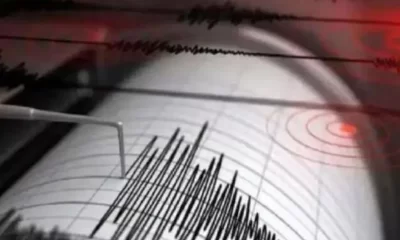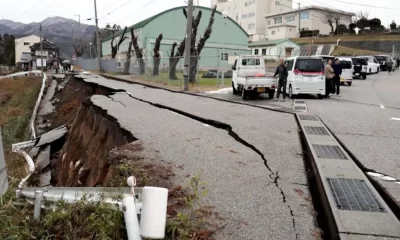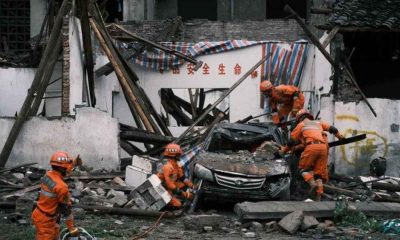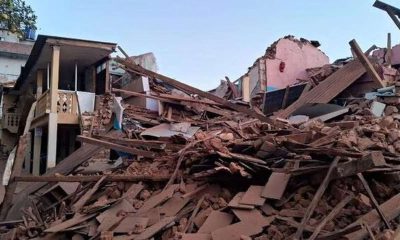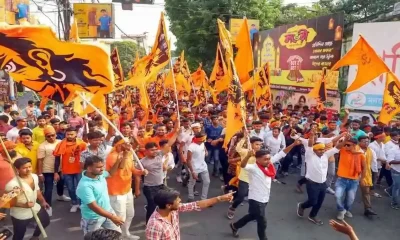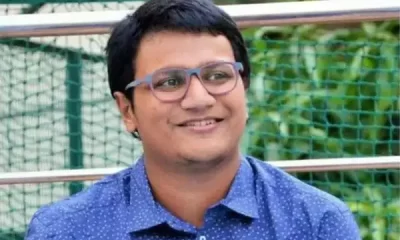Latest world news
Turkey-Syria earthquake: Death toll tops 21,000, biting cold hampers rescue operations
Death toll from the colossal earthquake that devastated Turkey and Syria earlier in the week topped 21,000 even as biting cold hampered search and rescue operations dimming hopes of finding more survivors buried under the rubble.
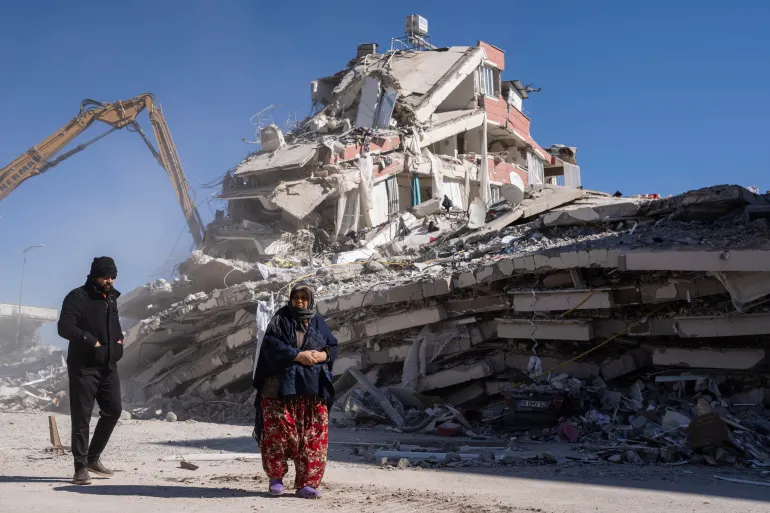
Death toll from the colossal earthquake that devastated Turkey and Syria earlier in the week topped 21,000 even as biting cold hampered search and rescue operations dimming hopes of finding more survivors buried under the rubble.
On Thursday, World Health Organisation (WHO) chief Tedros Adhanom Ghebreyesus left for Syria to oversee aid efforts as bitter cold hampered the search of thousands of flattened buildings and threatened the lives of many quake victims who are without shelter and drinking water.
According to disaster experts, chances for finding more survivors have dropped significantly, now that the crucial 72-hour mark has passed.
Ground reports said that people were scouring body bags laid out in a hospital car park in Turkey’s southern city of Antakya to search for missing relatives, a cruel reminder of the scale of the tragedy.
An AFP report quoted a Syrian refugee, Rania Zaboubi, as saying that she lost eight members of her family and somehow found her aunt alive.
An aid convoy reached militant-held north-western Syria on early Thursday via the Bab al-Hawa border crossing, first since the 7.8 magnitude quake struck on Monday.
The crossing in the way UN aid efforts can reach militant-held zones without passing through Syrian regime-controlled areas.
Read Also: Debt-ridden Mumbai man kills wife, commits suicide
The war-torn nation, already on the brink of collapse due to the decade long civil war which has razed key infrastructure such as hospitals, is ill-equipped to face a disaster of this magnitude and scale.
UN Secretary-General Antonio Guterres urged the Security Council to authorise the opening of new cross-border humanitarian aid points between Turkey and Syria to deliver aid.
Four million people living in militant-held areas of northwest Syria have had to rely on the Bab al-Hawa crossing as part of a cross-border aid operation authorised by the Security Council nearly a decade ago.
Temperatures in the Turkish city of Gaziantep plunged to minus five degrees Celsius early Thursday, but thousands of families spent the night in cars and makeshift tents.
Parents walked the streets of the city — close to the epicentre of Monday’s earthquake — carrying their children in blankets because it was warmer than sitting in a tent. Gyms, mosques, schools and some stores have opened at night. But beds are still at a premium and thousands spend the nights in cars with engines running to provide heat.
International rescue teams have said the bitter cold has forced them to weigh whether to use their limited fuel supplies to keep warm or to carry out their work.
The death toll in the devastating earthquake that struck Turkey and neighbouring Syria has mounted to over 15,000 even as survivors of the disaster scramble for food and shelter amid freezing weather.
On Wednesday, President Recep Tayyip Erdogan conceded “shortcomings” after the Turkish government received flak for its response of lack thereof to the massive quake that razed thousands of buildings and trapped an ever-mounting number of people beneath the rubble.
According to on ground reports, survivors have been left to scramble for food and shelter — and in some cases watch helplessly as their relatives called for rescue, and eventually went silent under the debris. The rescue efforts have, however, been marred by freezing weather and the massive scale of the devastation.
Experts fear the toll to rise sharply over the next few days.
Turkey is in one of the world’s most active seismic zones in the world. A 7.8-magnitude tremor in 1939 killed over 33,000 people in the eastern Erzincan province.
The Turkish region of Duzce suffered a 7.4-magnitude earthquake in 1999, when more than 17,000 people died.
Supreme Court recommends 5 names for elevation as High Court Chief Justices
BJP minister removes kurta, washes himself at event due to itching, video viral | Watch
Latest world news
Bigg Boss 14 contestant Rahul Vaidya struggles walking in knee deep water, compares Dubai rains with Mumbai floods
Singer and TV personality Rahul Vaidya was recently stranded in the Dubai rains.

Rahul Vaidya, who was in Dubai ahead of his show which was scheduled to take place today, left the country due to heavy rains and reached Kolkata. The artist shared on social media his encounters in the UAE city, including challenges like walking through knee-deep water. Rahul provided an update regarding the heavy rainfall in Dubai on his Instagram profile.
The Bigg Boss 14 contestant revealed that he was in Kolkata and prepared to do an evening performance. Recalling the terrifying period he went through, Vaidya said there was a lot of confusion and panic in Dubai. The situation was similar to that when heavy floods hit Mumbai in 2005.
Vaiday also posted seval other images and videos of cars that were underwater and flooded roadways. The Bigg Boss 14 contestant, who shared his ordeal, claimed that even though it had just rained for two hours, the situation was dire.
In one of the video, which went viral he can be seen struggling in walking in knee-deep water. He can be also seen holding his sneakers in one hand and with other hand he was seen managing other things.
This is the result of the two hours of rain that it had, he can be heard saying in the video. Vidya also said he dosen’t believe Dubai is accustomed to a lot of rain. Everything had stopped working, he remarked.
After taking part in the first season of the singing reality show Indian Idol, Rahul Vaidya gained widespread recognition. In addition to Bigg Boss, he took part in Khatron Ke Khiladi 11.
Meanwhile, heavy rains that triggered flooding in the UAE and Bahrain, which left 18 people dead in Oman on Sunday and Monday, have paralyzed the financial hub of the Middle East, Dubai.
A lot of incoming flights were diverted from Dubai’s international airport because of the rain. At 7:26 p.m., the busiest airport in the world for foreign visitors stopped accepting new arrivals; a gradual resumption was announced for more than two hours later.
Images of planes navigating flooded tarmacs are making the rounds on social media.
According to pictures shared on social media, the flagship malls Dubai Mall and Mall of the Emirates both experienced heavy floods, while at least one Dubai Metro station had water up to the ankles.
There were several road collapses, severe flooding in residential areas, and numerous reports of leaks from windows, doors, and roofs.
Due to the unfavourable weather, schools around the United Arab Emirates were forced to close, and as more storms are predicted, the closures are anticipated to last until Wednesday. The government of Dubai allowed its staff to work remotely till this Wednesday.
Latest world news
Dubai sky turns green during storm in UAE, video goes viral
The UAE witnessed record-breaking rainfall on Tuesday and the National Centre of Meteorology recorded 254 mm of rainfall in less than 24 hrs in the Khatm Al Shakla area in Al Ain.

1 person was killed in UAE as it witnessed heavy rainfall on Tuesday, stranding commuters, flooding roads, disrupting trains and flights and resulting in water leakage from mall ceilings. The UAE witnessed record-breaking rainfall on Tuesday and the National Centre of Meteorology recorded 254 mm of rainfall in less than 24 hrs in the Khatm Al Shakla area in Al Ain. It is being said that the rainfall was the highest documented since the start of data collection in 1949.
The heavy rainfall in UAE came days after a similar situation in neighbouring Oman, where 13 people were killed in flash floods. Many parts of Oman saw torrential rains, which caused students to be trapped in buses and swept away motorists and trapped people in their homes.
Videos from Dubai circulating on social media showed widespread waterlogging on roads in Abu Dhabi, Dubai and other important cities. This left daily commuters in cars and other vehicles struggling to get back home. Dubai metro station too was seen flooded and closed.
One such video circulating on social media shows the aerial view of the city of Dubai from the top of a building. In the video the stormy winds are seen blowing over the city of Dubai. As the storm intensifies the Dubai sky turns green and ultimately gets covered by heavy rainfall. The video has gone viral on social media with more than 1.1 million views.
Another video showed water leakage from the ceilings of shopping malls, flooding the floors and destroying goods. A video which was shot in the famous Mall of the Emirates, showed pieces of ceiling falling as the rainwater gushed inside. Videos from many outlets of the Deira City Centre mall chain showed escalators being rendered unusable. Majid Al Futtaim, the company which owns the Mall of Emirates, said that the shopping complexes have been kept open and the customers are being sent away from the flooded areas.
India News
Sri Lankan Minister Douglas Devananda says statements on reclaiming Katchatheevu island from Sri Lanka have no ground
Devananda told the media on Thursday that it is not unusual to hear such claims and counterclaims about Katchatheevu as elections are taking place in India.
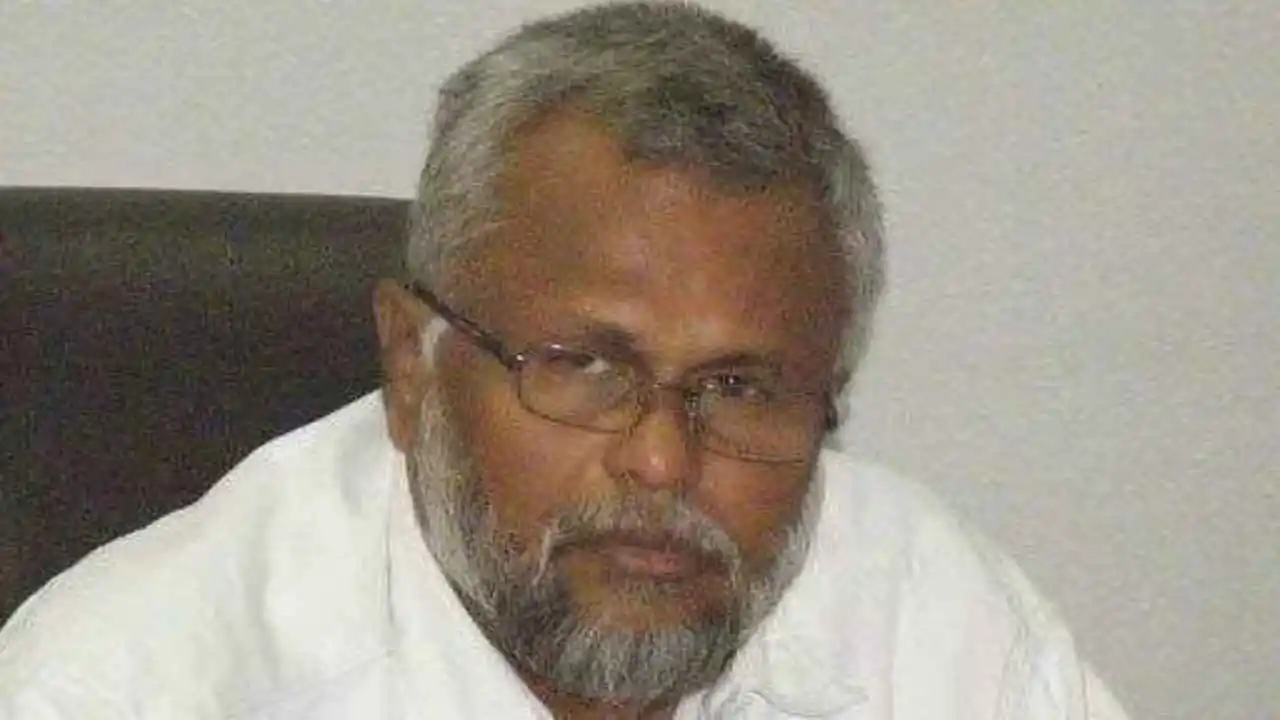
Sri Lankan Minister Douglas Devananda has said the statements from some political leaders in India on reclaiming Katchatheevu from the island nation have no ground. He told the media on Thursday that it is not unusual to hear such claims and counterclaims about the strategic island as elections are taking place in India.
The Sri Lankan Minister said he thought India is acting on its interests to secure this place to ensure Sri Lankan fishermen would not have any access to that area and that Sri Lanka should not claim any rights in that resourceful area. According to the 1974 agreement, Devananda said Indian and Sri Lankan fishermen can go fishing in the territorial waters of both countries until the pact was reviewed and amended in 1976.
The amended agreement resulted in fishermen from both countries being barred from fishing in neighboring waters. India’s ministry of External Affairs (MEA) on Thursday steered clear of the row surrounding Katchatheevu island. To a volley of questions on the Katchatheevu issue, MEA spokesperson Randhir Jaiswal reffered to External affairs Minister S Jaishankar’s recent comments on the matter.
He said he would like to talk about the issue that has been raised. He added the External Affairs minister has spoken to the press here in Delhi and also in Gujarat and has clarified all the issues. He said everyone should look into the press engagements and they would find the answers to their questions there.
The remarks from Devananda, a Sri Lankan Tamil, came days after the Narendra Modi government accused the Congress and its ally DMK in Tamil Nadu of overlooking national interests by handing over Katchatheevu island to Sri Lanka in 1974. The BJP has also been slamming the 2 parties for not ensuring the rights of the fishermen wanting to fish in waters around the island.
-
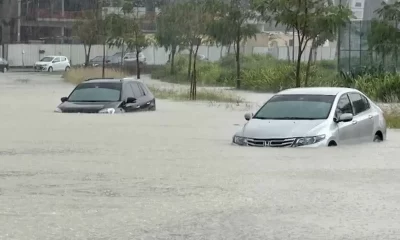
 Latest world news22 hours ago
Latest world news22 hours agoDubai sky turns green during storm in UAE, video goes viral
-
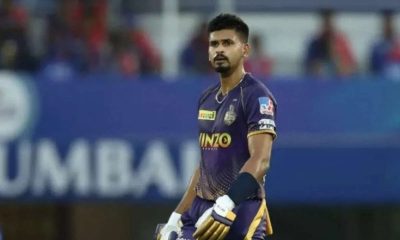
 Cricket news22 hours ago
Cricket news22 hours agoKKR captain Shreyas Iyer fined Rs 12 lakh for slow over rate in match against RR
-
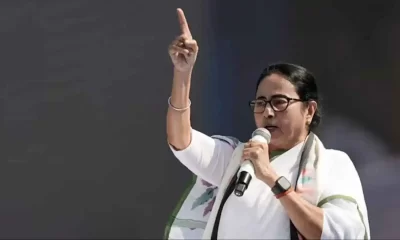
 2024 Lok Sabha Elections21 hours ago
2024 Lok Sabha Elections21 hours agoMamata Banerjee accuses BJP of plotting riots on Ram Navami
-
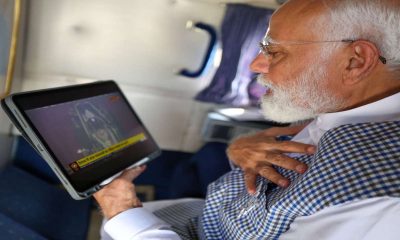
 India News24 hours ago
India News24 hours agoPM Modi chants Jai Shri Ram in Assam rally, shares visuals of Ram Lalla’s Surya Tilak, says emotional moment for him
-
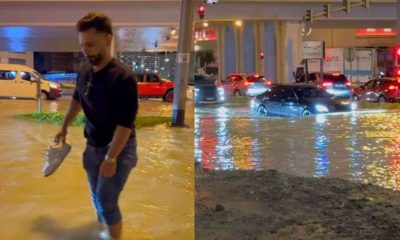
 Latest world news21 hours ago
Latest world news21 hours agoBigg Boss 14 contestant Rahul Vaidya struggles walking in knee deep water, compares Dubai rains with Mumbai floods
-

 India News19 hours ago
India News19 hours agoLamborghini Gallardo worth nearly Rs 1 crore set on fire over business dispute
-
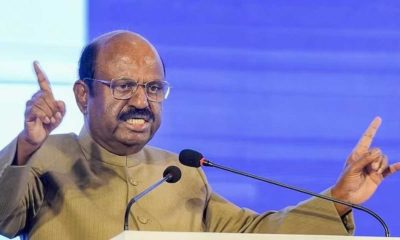
 2024 Lok Sabha Elections19 hours ago
2024 Lok Sabha Elections19 hours agoElection Commission advises Bengal Governor to not visit Cooch Behar on voting day
-
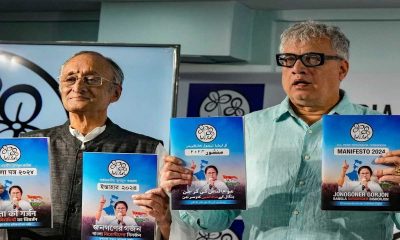
 2024 Lok Sabha Elections20 hours ago
2024 Lok Sabha Elections20 hours ago2024 Lok Sabha elections: TMC releases manifesto, Mamata Banerjee vows to scrap CAA, stop NRC



